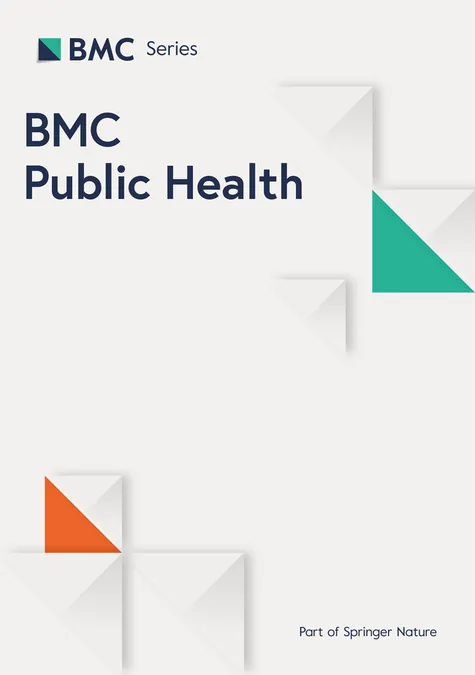
The Surprising Link Between Loneliness and Cannabis Use Among Seniors in Canada During COVID-19
2024-10-28
Author: Sarah
Introduction
During the COVID-19 pandemic that erupted in early 2020, Canada witnessed a dramatic increase in loneliness among older adults, escalating into a significant public health issue. While loneliness has always been more pronounced in senior populations—stemming from limited mobility, dwindling social networks, and chronic health conditions—the pandemic's physical distancing and restricted access to social services compounded these challenges.
Rising Loneliness Among Seniors
Several studies during this period highlighted that around 43% of older Canadians reported feeling lonely at least some of the time. The dire situation called attention to the pressing need to understand not just how loneliness affects seniors, but also the behaviors they may adopt in response—specifically, the rising trend of cannabis use.
Cannabis Use in Older Adults
As cannabis became legal in Canada in 2018, its consumption surged among older adults, becoming a notable public health topic. Interestingly, this demographic exhibited the fastest growth in cannabis use compared to younger age groups. Factors such as favorable societal attitudes towards cannabis among baby boomers and increased accessibility also contributed to this trend. Following the onset of the pandemic, cannabis use among older adults saw a significant uptick; approximately 20% of users aged 50 to 64 and 22% of those 65 and older reported consuming more cannabis compared to pre-pandemic levels.
Health Implications of Cannabis Use
While cannabis use among older adults is often discussed in the context of health benefits—ranging from pain relief to alleviating anxiety—research has shown that regular consumers may also be at a higher risk for physical and mental health complications, including greater incidences of loneliness. Studies have suggested that while some might turn to cannabis as a coping mechanism for loneliness, the reality often reflects a more complex relationship. Cannabis use can lead to emotional dysregulation and increased feelings of isolation, especially in users who may not feel comfortable sharing their consumption with others due to societal stigma.
Living Alone and Increased Cannabis Use
Add to this the reality that nearly 20% of older adults live alone in Canada, and the grim picture becomes clearer. Those who are isolated might be more prone to increased cannabis use, with loneliness ranking among the primary reasons stated for this trend. As participants in recent studies indicated, the pursuit of mood elevation or anxiety reduction through cannabis often accompanies heightened feelings of loneliness.
Research Findings on Loneliness and Cannabis Use
Recent findings have suggested that seniors who reported using cannabis also recorded higher loneliness scores in their assessments, highlighting a potential correlation that warrants further investigation. Notably, women, older adults living alone, and those with fewer close friends and relatives reported elevated levels of loneliness.
The Vicious Cycle of Loneliness and Cannabis Consumption
To complicate matters further, studies have indicated that cannabis consumption can lead to cognitive impairments and emotional challenges, rendering social engagements more difficult - thus creating a vicious cycle where increased consumption leads to greater loneliness.
Call for Community Awareness and Support
The implications of these findings are profound and necessitate a call for more community awareness and support regarding cannabis use among the elderly. With a significant proportion of first-time cannabis users being older adults, informally dispensed advice and lack of formal education pose serious risks.
Educational Resources for Seniors
As the world emerges from the pandemic, it’s vital for healthcare providers and community support programs to offer structured educational resources tailored specifically for older adults. Understanding the complex interplay between loneliness and cannabis use can foster a more informed approach to mental health and well-being. Supporting seniors in navigating these challenges through targeted interventions may not only combat loneliness but also promote healthier lifestyles as society continues to adapt in the post-pandemic era.
Conclusion
In conclusion, the increased incidence of loneliness amidst rising cannabis use among older Canadians directly underscores the urgent need for more focused research and intervention. Continued exploration of this dynamic relationship could help shape future public health strategies and ultimately improve the quality of life for seniors grappling with these dual challenges.



 Brasil (PT)
Brasil (PT)
 Canada (EN)
Canada (EN)
 Chile (ES)
Chile (ES)
 España (ES)
España (ES)
 France (FR)
France (FR)
 Hong Kong (EN)
Hong Kong (EN)
 Italia (IT)
Italia (IT)
 日本 (JA)
日本 (JA)
 Magyarország (HU)
Magyarország (HU)
 Norge (NO)
Norge (NO)
 Polska (PL)
Polska (PL)
 Schweiz (DE)
Schweiz (DE)
 Singapore (EN)
Singapore (EN)
 Sverige (SV)
Sverige (SV)
 Suomi (FI)
Suomi (FI)
 Türkiye (TR)
Türkiye (TR)